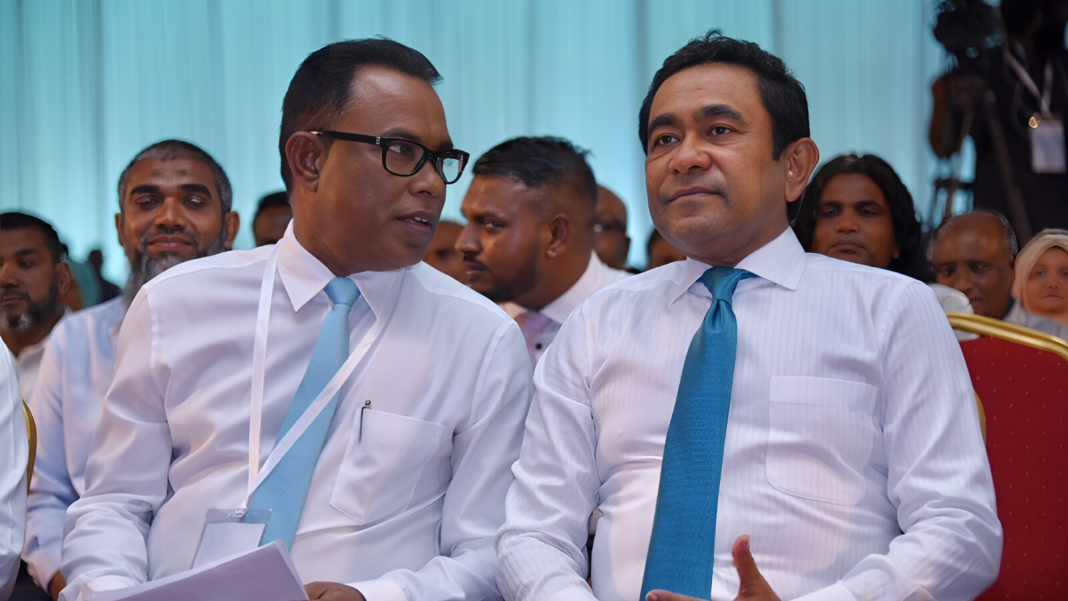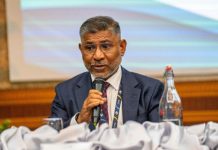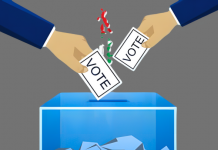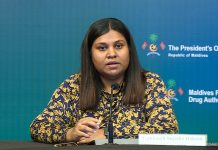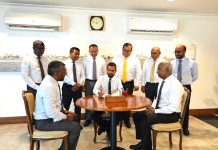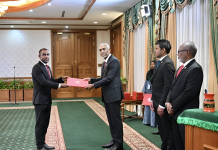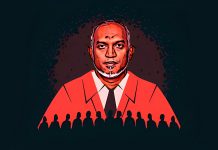Parliament Speaker and Chairperson of the ruling People’s National Congress (PNC), Abdul Raheem Abdulla, has faced serious allegations of betrayal from former President Abdulla Yameen. The rift between these two senior figures of the ruling coalition has intensified, with Yameen accusing Abdul Raheem of having never been a loyal supporter of his political career.
A History of Distrust
During a recent meeting at the People’s National Front (PNF) office, Yameen laid out a detailed account of Abdul Raheem’s political moves. According to Yameen, Abdul Raheem’s loyalty has always been fluid, and he has switched allegiances based on personal gain rather than political ideology. Yameen recalled that in the 2013 presidential election, Abdul Raheem campaigned for Jumhooree Party (JP) leader Qasim Ibrahim instead of supporting Yameen’s candidacy. This revelation casts doubt on Abdul Raheem’s sincerity during Yameen’s initial rise to power.
Yameen further explained that Abdul Raheem had distanced himself from Maldivian politics after failing to secure a leadership position within the Progressive Party of Maldives (PPM). Disillusioned by his defeat in the party’s internal elections, Abdul Raheem reportedly moved to Malaysia. He only returned to the Maldives after being personally requested by former President Maumoon Abdul Gayoom, a significant figure in Maldivian politics and Yameen’s half-brother.
Allegations of Betrayal After 2023 Election
Yameen’s frustration with Abdul Raheem appears to stem from events following the 2023 presidential election. Abdul Raheem had been a prominent figure in the campaign, consistently showing the image of the jailed former President Yameen to voters, calling on them to support the then-candidate and now-President Mohamed Muizzu. Central to the campaign’s messaging was the promise that Yameen would be freed if Muizzu came to power. However, once elected, the administration has so far failed to deliver on that promise.
What Yameen found even more troubling was that Abdul Raheem, after the election, allegedly sought to take control of the PNC, a party that was originally founded by Yameen. This act, Yameen suggested, was a betrayal of both personal trust and political loyalty, further deepening the rift between the two leaders. He described Abdul Raheem’s actions as a strategic takeover aimed at sidelining him, despite his central role in the party’s creation.
Political Opportunism
Yameen’s allegations suggest that Abdul Raheem’s political career has been marked by opportunism. From his early alignment with Qasim Ibrahim to his eventual reentry into Maldivian politics through Gayoom’s influence, Abdul Raheem has seemingly positioned himself to gain politically at various junctures.
In a more pointed criticism, Yameen accused Abdul Raheem of receiving undue power and influence in the current government under President Muizzu. He claimed that half of the government’s appointments were handed over to Abdul Raheem, illustrating the current administration’s weakness in managing internal political dynamics. The failure to fulfill the promises made during the campaign, especially regarding Yameen’s release, added further weight to Yameen’s discontent.
Personal Attacks and Counterclaims
The internal conflict between the two leaders has been marred by personal attacks. Abdul Raheem, in turn, has not hesitated to criticize Yameen publicly. He accused Yameen of being behind the 2015 explosion on the presidential launch, a serious allegation that still haunts Maldivian politics. Abdul Raheem also shared an anecdote where Yameen allegedly berated former Housing Minister Mohamed Muizzu, now President, to the point of tears over an issue related to the construction of the China-Maldives Friendship Bridge. These personal attacks reflect the depth of animosity between the two.
The Future of PNC and Yameen’s Influence
As the internal conflict unfolds, the future of the PNC under President Muizzu’s administration remains uncertain. Yameen’s allegations against Abdul Raheem could potentially destabilize the party, especially if public support shifts due to these revelations. The accusations of political opportunism and betrayal within the highest ranks of the ruling party have cast a shadow over its unity and ability to govern effectively.
Yameen’s message is clear: he believes that Abdul Raheem has never been a loyal follower and is now using his position to consolidate power within the government. Whether this conflict will lead to further fractures within the ruling coalition remains to be seen, but it has already exposed a deep division that could have lasting political consequences.

